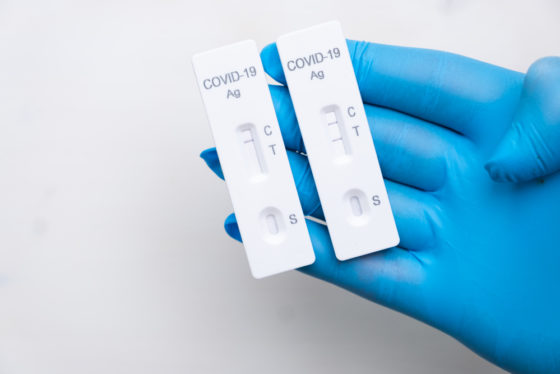Coronavirus infections rise 70% as fears of a new wave grow


The number of confirmed coronavirus infections in the Netherlands has risen for the third week in a row, and more people have been admitted to a hospital intensive care ward, public health institute RIVM said on Tuesday.
The number of positive tests measured at regional health board centres rose 70% in the week to Tuesday morning, following a 64% increase in the week before. Testing is currently largely restricted to healthcare workers and people who need a test to travel.
At the same time, the number of virus particles in waste water – seen as a good indication of the spread of the virus – is also up and there has been an increase in positive self test reports to the website Infectieradar, the RIVM said.
The number of hospital patients has remained stable but 26 people were admitted to an IC ward, compared with 19 in the preceding week. Despite the increase, this figure is still very low, the RIVM said in a news release.
The increase in infections is down to the global rise of three new Omicron variants,B.2.12.1, BA.4 and BA.5, which are more infectious and the number of reinfections is also increasing.
BA.5 is now the dominant strain in the Netherlands but there is no indication it produces a more serious illness than other Omicron variants. Nevertheless, it can still have a serious impact on people with vulnerable health and the over 60s, the RIVM said.
Warnings
On Monday, the Netherlands’ two biggest employers’ organisations made a public appeal to get people to start keeping to the basic coronavirus rules again, because of fears that a new wave is imminent.
Health minister Ernst Kuipers told MPs earlier this month there is a ‘very real’ risk of millions of people becoming infected during the autumn, but that the government aimed to keep closures to a minimum.
Organisations in sectors such as education, retail and the travel industry should agree when to introduce measures such as social distancing, one-way systems and screens to reduce infection, the minister said.
Kuipers also said the government could abandon the sector-based strategy if the ‘black scenario’ of a large-scale outbreak occurred and has refused to rule out a new lockdown.
Thank you for donating to DutchNews.nl.
We could not provide the Dutch News service, and keep it free of charge, without the generous support of our readers. Your donations allow us to report on issues you tell us matter, and provide you with a summary of the most important Dutch news each day.
Make a donation